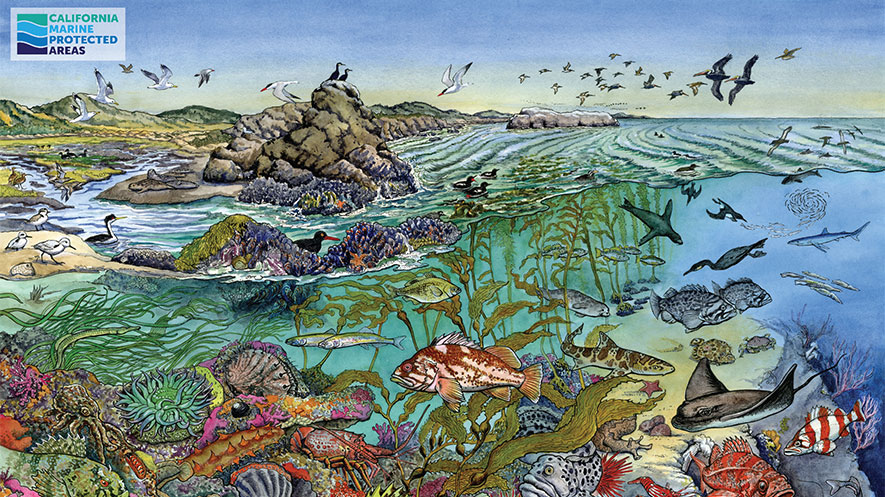Stretching from the California-Oregon border down to Mexico, California’s Marine Protected Area (MPA) network includes 124 marine parks and protects roughly 16% of the state’s waters. These MPAs function as a network, sheltering precious marine life and fragile habitats, while also allowing biological exchange between the protected sites.
But that protection doesn’t mean a thing if restrictions aren’t enforced.
On 7 February, the California Fish & Game Commission handed down the stiffest penalty ever in the history of the MPA network. The Commission ordered a five-year suspension of the license of Pacific Star Sportfishing, Inc., a recreational sportfishing vessel operator. The decision was made following oral arguments.
The Commission acted in response to a 2013 incident in which Pacific Star Sportfishing, a commercial passenger fishing vessel, intentionally took 24 paying customers into the Santa Barbara Island State Marine Reserve—a strict no fishing zone—to fish. Undercover officers on the vessel observed a total of 18 violations, including fishing in an MPA, exceeding legal limits on take, and use of illegal fishing methods.
In an undercover operation and subsequent boarding by officers in 2013, California Department of Fish and Wildlife (CDFW) wildlife officers observed 18 violations including poaching within California’s marine protected area (MPA) network, exceeding the possession limits of several fish species, using illegal methods to take fish and failing to report accurate counts on logbooks. Based on these violations, CDFW filed an accusation with the Commission against Pacific Star requesting that the Commission suspend this commercial passenger fishing vessel license.
“Illegal take of our marine resources, especially in MPAs, undermines the tireless work of law enforcement, scientists, the public and fishermen in California,” said Commission President Eric Sklar. “The Commission took ample time to review the department’s accusation and we hope this serves as a message that we do not take lightly these sorts of violations and will ensure those who are responsible receive the appropriate penalty.”
The Commission’s decision follows a two-day hearing in 2017 conducted by an administrative law judge on behalf of the Commission with CDFW and Pacific Star both participating. The judge ultimately proposed that the Commission suspend the license for two years, with only the first 90 days of the suspension taking effect so long as Pacific Star complied with certain terms of probation. The Commission rejected that proposal as inadequate and gave CDFW and Pacific Star each a chance to argue their positions, resulting in the extended suspension.
By increasing the three-month suspension to one lasting five years, the Commission sends a strong signal that California’s marine parks will be protected rigorously going forward.





